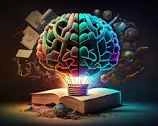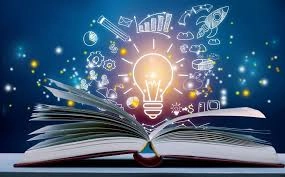profile/8051FB_IMG_15966485174114647.jpg
Harmorke

Importance Of Seeking Knowledge
~4.3 mins read

Definition of knowledge
Knowledge is the accumulation of information, facts, and understanding acquired through learning and experience. It empowers individuals and societies by providing the foundation for decision-making, problem-solving, and innovation. Knowledge can be categorized into various domains, including scientific, cultural, historical, and practical knowledge. It is dynamic and constantly evolving, shaped by research, exploration, and the dissemination of information. The pursuit of knowledge has driven progress throughout human history, leading to advancements in technology, medicine, art, and many other fields. In today's digital age, access to knowledge is easier than ever before, thanks to the internet and educational resources, enabling people to expand their understanding and contribute to the collective pool of human knowledge.Reasons for seeking knowledge
Seeking knowledge is a fundamental and deeply ingrained human trait, driven by various reasons and motivations. Here are some of the key reasons why people seek knowledge:
1. **Curiosity:** Curiosity is a powerful driving force behind seeking knowledge. It's the desire to understand the unknown, explore new ideas, and ask questions about the world.
2. **Problem Solving:** Knowledge provides the tools and information needed to solve problems and overcome challenges in everyday life, work, and society.
3. **Personal Growth:** Many individuals seek knowledge as a means of personal development and self-improvement. Learning new skills and acquiring knowledge can boost confidence and enhance one's sense of fulfillment.
4. **Career Advancement:** In the professional sphere, knowledge is often the key to career growth. Acquiring specialized skills and expertise can lead to better job opportunities and increased earning potential.
5. **Innovation:** Knowledge is the foundation of innovation and progress. It fuels creativity and the development of new ideas, products, and technologies.
6. **Cultural Understanding:** Knowledge about different cultures, traditions, and histories promotes cultural understanding and tolerance, fostering a more interconnected and harmonious world.
7. **Scientific Discovery:** Scientific inquiry is driven by the pursuit of knowledge. Researchers seek to uncover the mysteries of the universe, improve our understanding of natural phenomena, and develop new technologies.
8. **Historical Perspective:** Knowledge of history helps us learn from the past, avoid repeating mistakes, and appreciate the context of current events and societal trends.
9. **Social Awareness:** Knowledge about social issues, politics, and global affairs is crucial for informed citizenship and active participation in society.
10. **Human Connection:** Sharing knowledge with others fosters connections and collaboration. It's a way to connect with people who share similar interests and passions.
11. **Environmental Awareness:** In an era of environmental challenges, seeking knowledge about sustainability, conservation, and climate change is essential for making informed decisions about our impact on the planet.
12. **Health and Well-being:** Knowledge about health and wellness allows individuals to make informed choices about their physical and mental well-being, leading to a healthier and happier life.
13. **Philosophical Exploration:** Knowledge can also be sought for its own sake, as people explore philosophical and existential questions about the nature of reality, ethics, and the meaning of life.
These reasons for seeking knowledge demonstrate its multifaceted and essential role in human life, shaping our understanding of the world and our place in it.
Importance of knowledge
Knowledge holds immense importance in various aspects of life, society, and personal development. Here are some key reasons why knowledge is essential:
1. **Empowerment:** Knowledge empowers individuals by providing them with information and skills. It enables people to make informed decisions, solve problems, and take control of their lives.
2. **Innovation:** Knowledge is the foundation of innovation and progress. It drives scientific discoveries, technological advancements, and the development of new ideas, products, and services.
3. **Personal Growth:** Continuous learning and the acquisition of knowledge contribute to personal growth and development. They enhance self-esteem, confidence, and a sense of fulfillment.
4. **Career Advancement:** In the professional world, knowledge is often the key to career advancement. Acquiring expertise and staying up-to-date with industry trends can lead to better job opportunities and higher earning potential.
5. **Critical Thinking:** Knowledge fosters critical thinking skills, enabling individuals to analyze information, evaluate evidence, and make reasoned judgments. This is crucial in navigating complex issues.
6. **Global Understanding:** Knowledge about different cultures, societies, and global affairs promotes cultural awareness and international cooperation, contributing to a more interconnected world.
7. **Problem Solving:** Knowledge equips individuals with the tools and information needed to solve problems effectively, whether they are personal, societal, or global in nature.
8. **Historical Perspective:** Understanding history through knowledge helps us learn from past mistakes, appreciate cultural heritage, and gain insights into the causes of current events and trends.
9. **Social Change:** Knowledge is a catalyst for social change and progress. Informed individuals are more likely to advocate for positive changes in their communities and society at large.
10. **Environmental Responsibility:** Knowledge about environmental issues is crucial for making sustainable choices and addressing environmental challenges facing the planet.
11. **Health and Well-being:** Knowledge about health, nutrition, and mental well-being empowers individuals to make lifestyle choices that promote better physical and mental health.
12. **Civic Engagement:** Informed citizens are better equipped to participate in civic activities, make educated voting decisions, and hold their governments accountable.
13. **Lifelong Learning:** Knowledge encourages a lifelong learning mindset, where individuals continue to seek new information and skills throughout their lives, adapting to changing circumstances.
14. **Personal Fulfillment:** Knowledge can be personally fulfilling, as the pursuit of understanding and mastery in various fields provides a sense of purpose and accomplishment.
In summary, knowledge is not only a valuable asset but also a driving force behind progress, personal growth, and positive societal change. It enables individuals to navigate the complexities of the modern world and make meaningful contributions to their communities and society as a whole.
Advertisement

Link socials
Matches
Loading...
